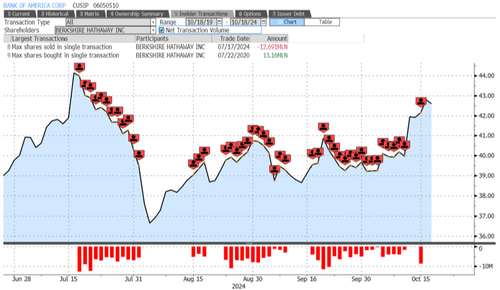
The U.S. automotive industry is in the early stages of a major transition to electric vehicles (EV).
On one hand, sales of traditional gasoline-powered vehicles are doing fine and sales of SUVs and trucks still haul plenty of profits. On the other hand, EV sales growth isn't accelerating as quickly as anticipated and losses are mounting. That's part of why Morgan Stanley analyst Adam Jonas believes things are about to get tougher for the auto industry and specifically downgraded Rivian Automotive ( RIVN 3.
85% ) , Ford Motor Company ( F 0.94% ) , and General Motors ( GM 1.46% ) .
Here's why, and if the downgrade is warranted. View from the top Jonas went so far to cut his view of the broader U.S.
auto industry, moving his view from "attractive" to "in-line," which means the analyst doesn't believe investors should allocate too much of their portfolio to auto stocks. Essentially, Jonas is saying he doesn't see upside in the industry right now. One point Jonas makes is that U.
S. dealer inventories are on the rise, which historically has put pressure on new vehicle pricing. While at first glance this is bad news for auto manufacturers such as Ford and GM, it might not be all that bad.
Consider that vehicles are still not all that affordable, with a standard car payment up roughly 40% from pre-pandemic levels. Some relief on vehicle pricing could actually improve demand for vehicles. Another thing Jonas points to is slowing growth in China with too much production capacity.
It's true that American automakers have struggled to keep up with China's rapid transition to EVs. In July, EVs in China accounted for more than 50% of new passenger car sales for the first time. American automaker sales in China have been sliding for years, and it will never turn into the second pillar of profits, next to North America, once envisioned by management.
It's worth noting that Bank of America analyst John Murphy is more optimistic thanks to the potential help from a rate cut. "We expect lower rates to be supportive of new vehicle sales which we are already constructive on due to pent-up demand and incremental mass market model launches," the analyst wrote in a September report, according to Barrons . Specific autos It's also worth noting that much of this pessimism is already priced into Ford and GM stocks, with their price-to-earnings (P/E) ratios at less than 10 and 5 times, respectively.
Jonas downgraded General Motors from hold to sell and moved his price target to $42 from $47. Jonas downgraded both Rivian and Ford from buy to hold with Ford's price target moving from $16 to $12 and Rivian's price target moving from $16 to $13. Overall, roughly 30% of analysts covering Ford have a buy rating, according to FactSet .
For GM the buy rating checks in at 55%, and it's 50% for Rivian. What it all means Overall, investors should take these upgrades and downgrades with a grain of salt. While Jonas is correct with his concerns, much of that sentiment seems to be priced in to the stocks already.
But it's also true that the transition to EVs is going to be a long one, with losses aplenty for the near term. Ultimately, however, it's easier to agree with Jonas' assessment that the industry has moved from "attractive" to "in-line," because investors need to keep a long-term horizon for auto investments right now; the near-term transition to EVs is just simply going to be bumpy ..














